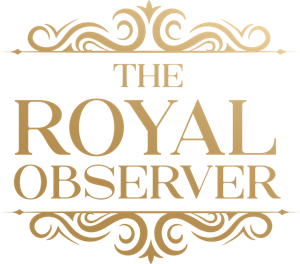Queen Elizabeth's Greatest 'Blunder': Monarch Finally 'Bowed to Pressure' From Her People to Openly Grieve for Princess Diana

Queen Elizabeth II bowed her head to Diana, Princess of Wales coffin.
The death of Princess Diana came at an already low point for the royal family. Early in 1997, Diana, gaining strength after the ordeal of her divorce, and Prince Charles, seeking to repair his damaged reputation, both embarked on a PR battle to win the public's hearts and minds.
Dubbed the "War of the Waleses, it involved such embarrassments as leaked recordings of phone conversations in which Diana's friend James Gilbey discussed m-----------, and Charles' confession in a call with his lover, Camilla Parker-Bowles, that he wished he were her tampon.
Behind the scenes, Elizabeth was worried. Having come to the throne as a result of the crisis caused by the abdication of King Edward VIII, her uncle, she knew just how fragile the monarchy was, and that, while there's a vast and hugely expensive operation devoted to keeping the wheels of The Firm (as the monarchy has been nicknamed) in motion, it's fueled by the will of the British people.
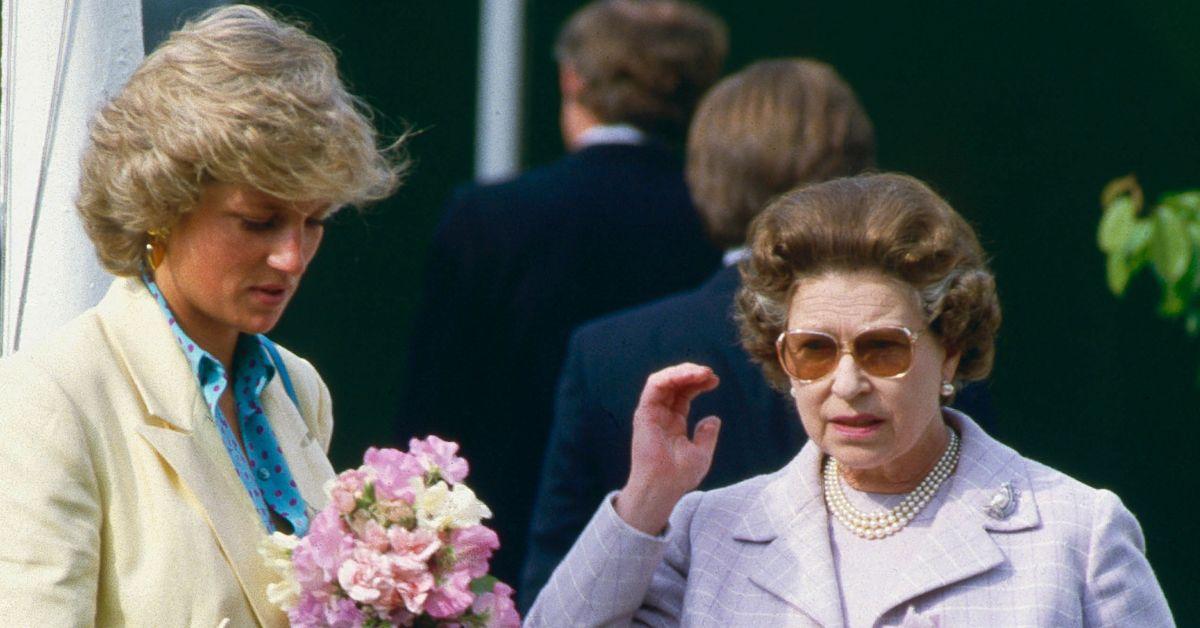
Queen Elizabeth II and Diana, Princess of Wales, pictured in the 1980s.
Without their support, she understood, the House of Windsor would be in peril. Diana's shocking death on Aug. 31, 1997, in a car crash in Paris, only served to bring the simmering discontent among the populace to a head. In the days following the tragedy, the queen faced an unprecedented wave of criticism over the royal family's apparent refusal to make a public showing of their grief.
Rather than travel to London, where crowds began laying flowers at the gates of Buckingham Palace, Elizabeth and Philip hunkered down at Balmoral in Scotland for another week, ignoring pleas from the public that they return. The queen, well aware of the dangers, struggled to find a compromise that would help protect everything she'd built in her long and popular reign. She felt strongly that her priority lay with her grandsons, William and Harry, and knew she needed to protect their privacy as they mourned the loss of their mother.
But they weren't the only ones grieving. The flowers, cards, and tributes filling the grounds of Kensington Palace and the fields around Diana's childhood home were a testament to the heartbreak felt by the normally stoic British people, who were demanding more than protocol from the royals. After meeting with Prime Minister Tony Blair, the queen finally decided to break with tradition and honor her former daughter-in-law with a royal funeral.
She also agreed to lower the Union Jack flag at Buckingham Palace to half-staff. Most tellingly, she made a special televised address on Sept. 5, 1997. "We have all been trying in different ways to cope," she told her subjects, inviting them to "join in expressing our grief at Diana's loss, and gratitude for her all-too-short life."
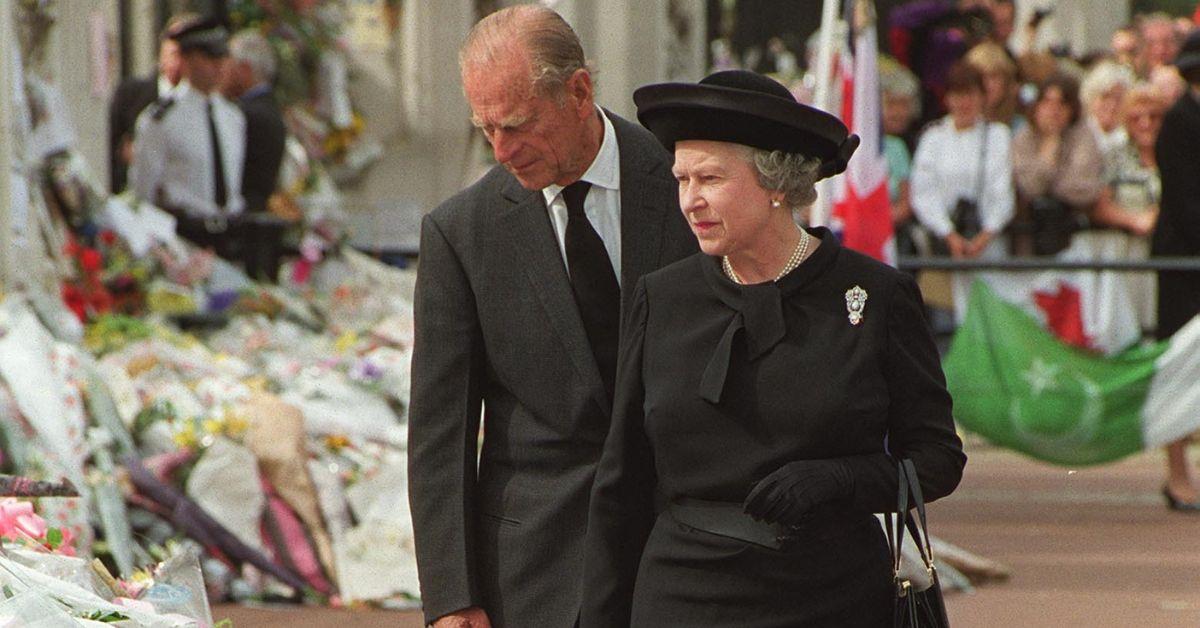
Queen Elizabeth II, along with Prince Philip, view flowers left outside Buckingham Palace for Diana, Princess of Wales.
Her former senior courtier, Sir Malcolm Ross, who organized the funeral, later revealed that Elizabeth was "deeply hurt" by the public criticism. "I knew the queen would be very strong in her views. She didn't lower the standard on the death of her father, and she wouldn't lower the standard on the death of anybody else. These protocols are crucial to maintain standards," he explained.
Former aide Anji Hunter, who also played a key role in the funeral arrangements, agreed. "It was very painful for [Philip] and for the queen to hear that their public, that they had served so well through all these years, were also beginning to turn against them." For his part, Prime Minister Blair confessed that it was "very difficult to work out exactly what the queen was thinking at this time."
The monarch, he speculated, "was resistant to anything that struck her as false or struck her as a public relations event in the face of something that was a profound personal tragedy."
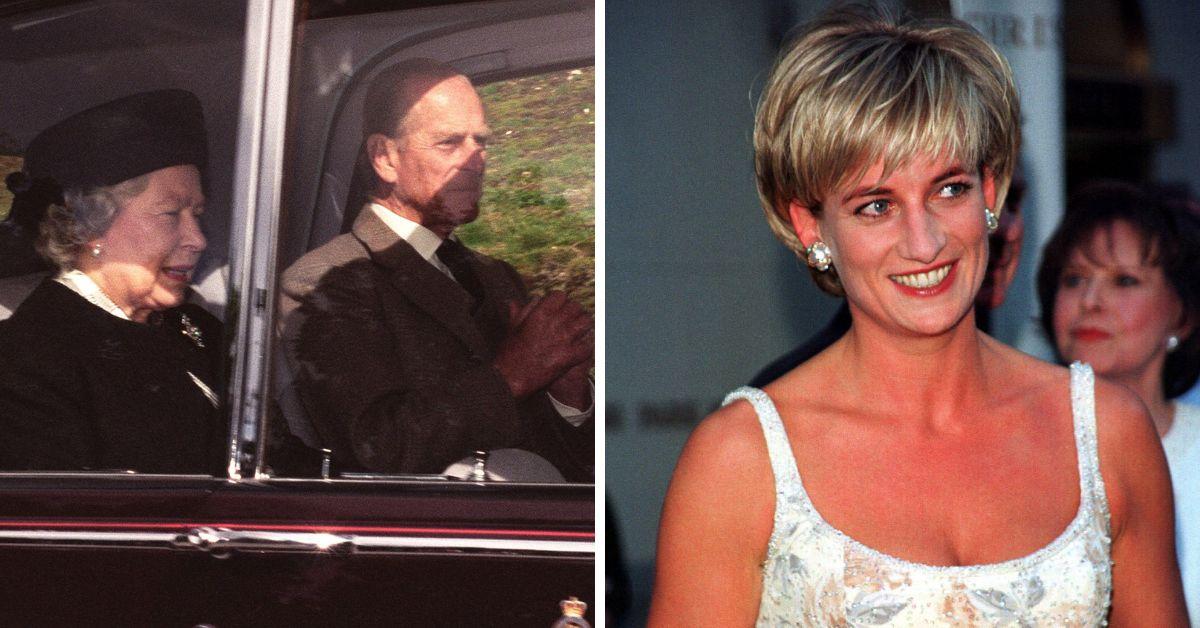
Diana, Princess of Wales, sudden death in August 1997, brought about a strong (but brief) wave of republicanism against the monarchy in Britain.
And, he added, given Diana's harsh criticism of Prince Charles, and, by extension, the rest of the royal family, "there was going to be a risk that the country's sense of loss turned to a sense of anger and grievance and then turned against the monarchy!"
While Elizabeth "was obviously very sad about Diana," Blair added, "she was also concerned about the monarchy itself because the queen has a very strong instinct about public opinion and how it plays!"
In the end, Elizabeth struck the right balance. The royal family and the nation mourned together, and then, with heavy hearts, moved on.
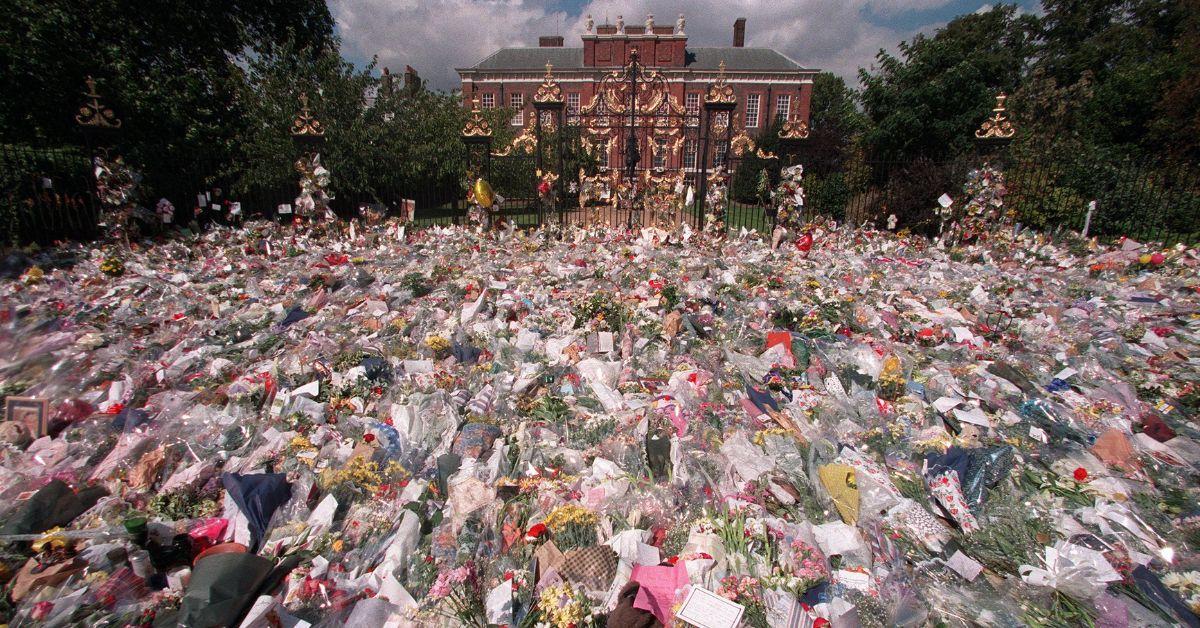
Flowers outside Kensington Palace left for the late Diana, Princess of Wales in September 1997.
Powered by RedCircle
